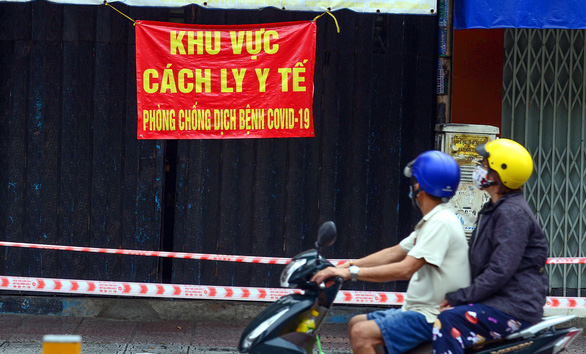The Ho Chi Minh City Department of Health has issued official guidance on how to monitor and care for COVID-19 patients at home as part of its bid to reduce pressure on local treatment facilities.
The guidance was signed by Tang Chi Thuong, deputy director of the city’s health department, and was sent to local hospitals and district-level administrations and medical centers.
The document highlighted that COVID-19 patients with no symptoms who meet certain requirements on their seventh day at treatment facilities are allowed to be discharged and have their health monitored at home for 14 days.
Asymptomatic patients who were recently detected in the community can also be quarantined at their houses for 14 days if they do not suffer from obesity and underlying health conditions.
Quarantined people must stay in a separate room with windows and have a separate bathroom.
The room must have a recycle bin with a proper cover, sufficient personal items, hand and surface sanitizer, face masks, thermometers, essential medicine, and vitamin supplements.
A table should be put in front of the room for the supply of meals and personal items.
Each patient must have their own phone number and must be provided with the contact information of the local medical center and rapid response team.
Children and the elderly should be taken care of by family members.
If all family members are infected with the disease and are allowed to undergo home quarantine, a separate room for each patient is not necessary.
Patients are advised to wear face masks all the time and change their masks twice a day. The face masks must be disinfected before being discarded.
They must measure their body temperature at least twice a day and file health declarations via mobile apps at least once a day.
Sufficient nutrition and hydration as well as frequent physical exercise should be maintained.
Patients are advised to contact local medical centers if they have a fever, coughing, a sore throat, diarrhea, loss of smell or taste, chest pain, and signs of difficulty breathing.
They should call the 115 emergency hotline or rapid response team if having serious symptoms including shortness of breath, rapid breathing (over 30 breaths per minute), extreme fatigue, and cyanosis.
Family members who live with the patients must also fill out health declaration forms at least once per day.
Vietnam had documented 133,405 COVID-19 cases as of Friday afternoon, with 31,780 recoveries and 1,022 deaths, according to the Ministry of Health.
The country has recorded 129,622 local infections in 62 provinces and cities, including 84,521 cases in Ho Chi Minh City, since the fourth wave broke out on April 27.
Like us on Facebook or follow us on Twitter to get the latest news about Vietnam!






















































